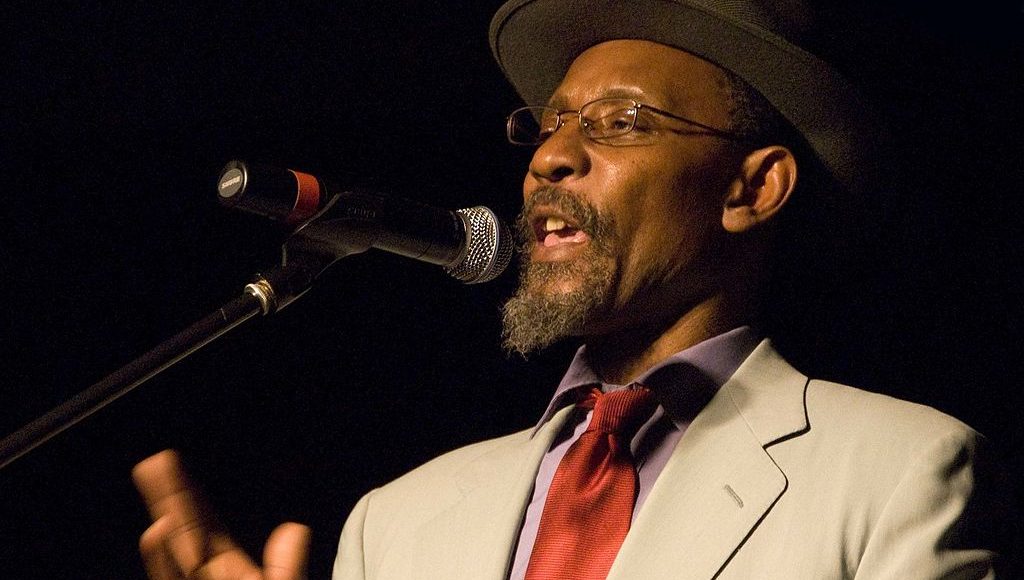Linton Kwesi Johnson
Biography
Linton Kwesi Johnson was born in 1952 in Chapelton, a small rural town in Jamaica. He moved to London at the age of 11 to join his mother who had immigrated two years earlier. In London, he attended Tulse Hill Comprehensive and lived with his mother in Brixton, an area of London with many Jamaican immigrants that is vividly depicted in his poetry.
His is a uniquely British form of language […] This is the English language coming back home, changed.
While at school, Johnson joined the British Black Panthers’ youth section. The Panthers had access to a library where Johnson was exposed to African American literature, introducing him to a legacy of black intellectual history and literary culture that the English school system had not taught him. As well as the Harlem Renaissance writers, Johnson discovered W. E. B. Du Bois’s The Souls of Black Folk, which was one of his core inspirations to begin writing poetry. Johnson’s desire to create reggae poetry was motivated by his own passion for reggae music and by this tradition’s previous experimentations with jazz poetry.
His volumes of printed poetry include Voices of the Living and the Dead (1974), Dread Beat and Blood (1975), and Inglan is a Bitch (1980). In 2002, Mi Revalueshanary Fren: Selected Poems was published in the Penguin Modern Classics series. He has also released several reggae albums, including Dread Beat an’ Blood (1978), Forces of Victory (1979) and Bass Culture (1980).
Writing

Linton Kwesi Johnson, Bryan Ledgard, 2007 (CC BY 2.0) via Flickr
John McLeod points out that Johnson’s life and work form a bridge between the post-war generation of Caribbean immigrant writers and the ‘so called “second-generation” British-born black Britons’. Johnson’s work is deeply embedded in the tradition of Anglophone Caribbean oral poetry. However, he has simultaneously played a crucial role in giving voice to a specifically Black British identity through his anti-racist activism in Britain, innovation in the field of British reggae, and interaction with the punk movement and other British subcultures.
Johnson’s dub poetry often challenges the boundaries between music, poetry, and ‘real-world’ politics. It is often explicitly political, and many of his poems explore issues such as police harassment, racism, and classism in a very confrontational and straightforward way. His most famous poem ‘Inglan is a Bitch’ portrays the bleak reality of racial discrimination, unemployed, and low-paid jobs in a grey and depressing 1970s England. Poems such as ‘Bass Culture’, ‘Dread Beat an Blood’, and ‘Five Nights of Bleeding’ also vividly portray urban nightlife and reggae and sound-system culture in Britain.
Through his depiction of everyday life in Brixton and his chronicling of important political events and cultural movements in black history in Britain, Johnson’s poetry constantly explores the relationship between aesthetics and politics, and the ways in which poetry and political activism can merge, supplement, and challenge one another.
—Louisa Layne, 2017
Cite this: Layne, Louisa. “[scf-post-title].” Postcolonial Writers Make Worlds, 2017, https://writersmakeworlds.com/linton-kwesi-johnson/. Accessed 15 July 2024.
